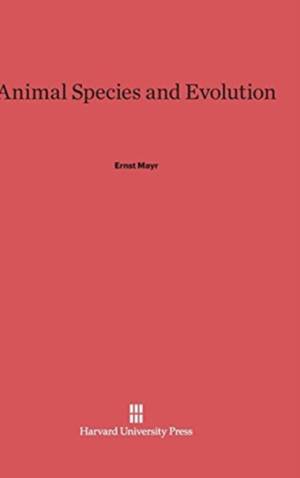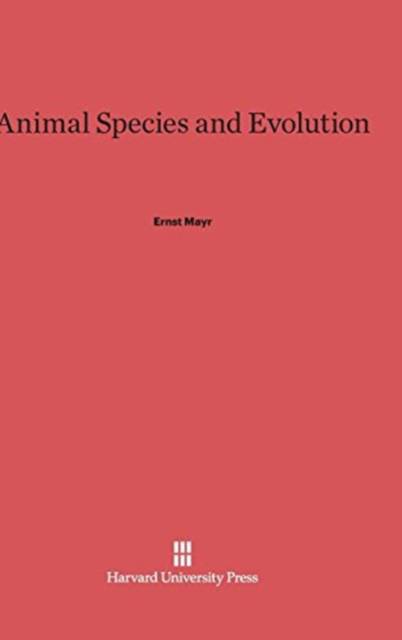
- Afhalen na 1 uur in een winkel met voorraad
- Gratis thuislevering in België vanaf € 30
- Ruim aanbod met 7 miljoen producten
- Afhalen na 1 uur in een winkel met voorraad
- Gratis thuislevering in België vanaf € 30
- Ruim aanbod met 7 miljoen producten
Zoeken
Omschrijving
This masterly and long-awaited work is a full exposition, synthesis, summation, and critical evaluation of the present state of man's knowledge about the nature of animal species and of the part they play in the processes of evolution. In a series of twenty chapters, Ernst Mayr presents a consecutive story, beginning with a description of evolutionary biology and ending with a discussion of man as a biological species. Calling attention to unsolved problems, and relating the evolutionary subject matter to appropriate material from other fields, such as physiology, genetics, and biochemistry, the author integrates and interprets existing data. Believing that an unequivocal stand is more likely to produce constructive criticism than evasion of an issue, he does not hesitate to choose that interpretation of a controversial matter which to him seems most consistent with the emerging picture of the evolutionary process. Between the terminal points mentioned above, Mr. Mayr pursues the narrative through discussions of species concepts and their application, morphological species characters and sibling species, biological properties of species, isolating mechanisms, hybridization, the variation and genetics of populations, storage and protection of genetic variation, the unity of the genotype, geographic variation, the polytypic species of the taxonomist, the population structure of species, kinds of species, multiplication of species, geographic speciation, the genetics of speciation, the ecology of speciation, and species and transpecific evolution. The volume provides a valuable glossary; and an inclusive bibliography greatly extends its range for those who wish to investigate special aspects of the material. Animal Species and Evolution is presented as a permanent entity. In accordance with the author's feeling that the acquisition of new knowledge will require a new statement, rather than an emendation of a previous one, no substantive revisions of this volume are planned for future printings. Because of the impossibility of experimenting with man, and because an understanding of man's biology is indispensable for safeguarding his future, emphasis throughout this book is placed on those findings from the higher animals which are directly applicable to man. In his final chapter on hominids and the various forms of Homo, Mr. Mayr comes to the conclusion that, while modern man appears to be just as well adapted for survival purposes as were his ancestors, there is much evidence to suggest that he is threatened by the loss of his most typically human characteristics. It would be within his power to reverse this tendency.
Specificaties
Betrokkenen
- Auteur(s):
- Uitgeverij:
Inhoud
- Aantal bladzijden:
- 811
- Taal:
- Engels
Eigenschappen
- Productcode (EAN):
- 9780674865303
- Verschijningsdatum:
- 5/02/1963
- Uitvoering:
- Hardcover
- Formaat:
- Genaaid
- Afmetingen:
- 156 mm x 234 mm
- Gewicht:
- 1306 g

Alleen bij Standaard Boekhandel
+ 210 punten op je klantenkaart van Standaard Boekhandel
Beoordelingen
We publiceren alleen reviews die voldoen aan de voorwaarden voor reviews. Bekijk onze voorwaarden voor reviews.











